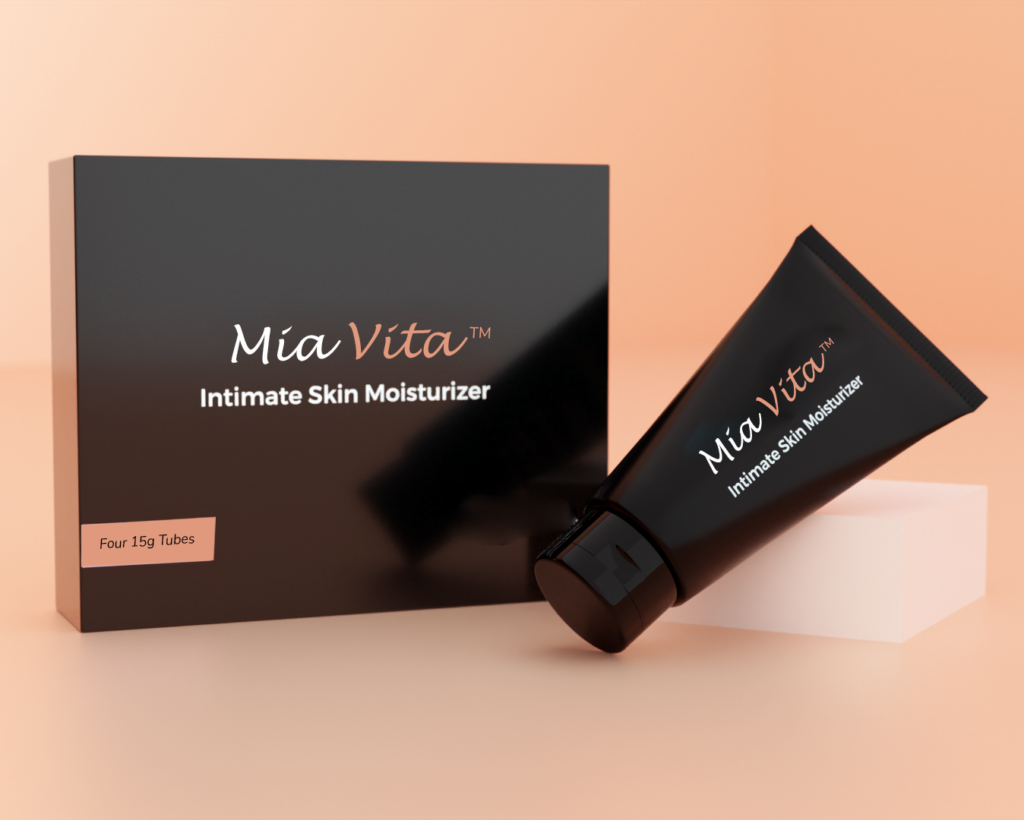It may be the most taboo and most Googled subject related to menopause. Some women assume it’s inevitable; others will perform enough internet research to warrant a thesis on the subject. We’re talking about vaginal dryness.
And one thing is certain: Vaginal dryness is treatable.
And for the 50-60 percent of postmenopausal women who experience it, that’s great news. But like many topics around menopause, misinformation abounds. To help you understand the truth of the matter, here are seven common questions about vaginal dryness, remedies, and its impact on sex.
1. Will I lose my sex drive at menopause?
Menopause is not a death sentence for your libido. Some women report a stronger libido during perimenopause or after menopause. Others have the same sex drive that they’ve always had. And, yes, there are some women who are less interested in sex or have a more difficult time becoming aroused after menopause as a result of a drop in estrogen. That also contributes to vaginal atrophy, which can result in dryness and pain during sex. Both of those symptoms can make sex feel like more trouble than it’s worth.
2. Is vaginal atrophy the only thing that can lead to a low sex drive after menopause?
Vaginal atrophy and the accompanying dryness can be so uncomfortable that sex is really the last thing on your mind. But there are other common menopause symptoms that factor in as well. Many women report anxiety and depression before or after menopause. Some SSRI (selective serotonin reuptake inhibitors) and SNRI (serotonin and norepinephrine reuptake inhibitors) treatments for anxiety and depression can dampen sexual desire. If you’re experiencing mental health issues related to menopause, talk to your doctor about treatment options that won’t impact your sex drive. They do exist!.
3. How can I improve my sexual health in general?
According to the U.S. Department of Health & Human Services Office on Women’s Health, improving your overall health goes a long way toward improving your sexual health. That means exercising and eating right to keep your energy up and help keep hormones balanced. Sex increases blood flow to the vagina, which helps keep tissues healthy. You may need more time to get aroused than in years past — that’s perfectly normal, so be kind to yourself — and if you’re experiencing vaginal dryness, keep reading.

4. How can I avoid vaginal dryness?
There are a few things you can do right away that can make a difference. FemmePharma medical director Dr. Deborah Saltman recommends that you not wash your vulva with harsh products such as soaps. Soap — including body wash and bubble bath — can be drying and irritating, especially to sensitive skin. Instead, use clean, warm water to wash. Launder underwear only with detergent free of dyes or scents (there are a few specifically created for sensitive skin). Finally, use only undyed, unscented toilet paper. If you do experience dryness, a water-based vaginal moisturizer used daily can help tremendously.
5. How much do ingredients matter in a vaginal moisturizer?
They matter a lot! A high-quality vaginal moisturizer has two key ingredients: hyaluronic acid and vitamin E. Hyaluronic acid is found in many skin serums and creams because of its ability to retain high numbers of water molecules and form a moisturizing film. It’s ideal for maintaining a water balance, which is why it’s widely used in dermatology. Vitamin E has antioxidant properties and plays a part in cell metabolism.
6. Does evening primrose oil help with vaginal dryness?
Evening primrose oil has been touted as a popular cure for everything from eczema to breast pain. But when something sounds too good to be true, it usually is. There is no medical evidence that evening primrose oil helps with vaginal dryness or any other medical issue. It has not been approved by the FDA, so consult with your doctor if it’s something you want to try.
7. Are vaginal moisturizers and sexual lubricants the same thing?
No. Vaginal moisturizers and sexual lubricants address the same issue but serve different purposes. Vaginal moisturizers provide moisture around and inside the vagina (if used with an applicator) and help with the ongoing symptoms of vaginal dryness. They should be used on a regular basis.
Lubricants are intended for use at the time of sexual activity. They are applied to the vaginal opening and to your partner to provide lubrication and reduce the pain associated with vaginal atrophy and dryness.
Both moisturizers and lubricants are available over the counter in stores and online, including FemmePharma’s Mia Vita Intimate Skin Care Line.
Every woman experiences menopause differently. To learn what our doctor has to say about common symptoms, read Common Questions About Menopause.
